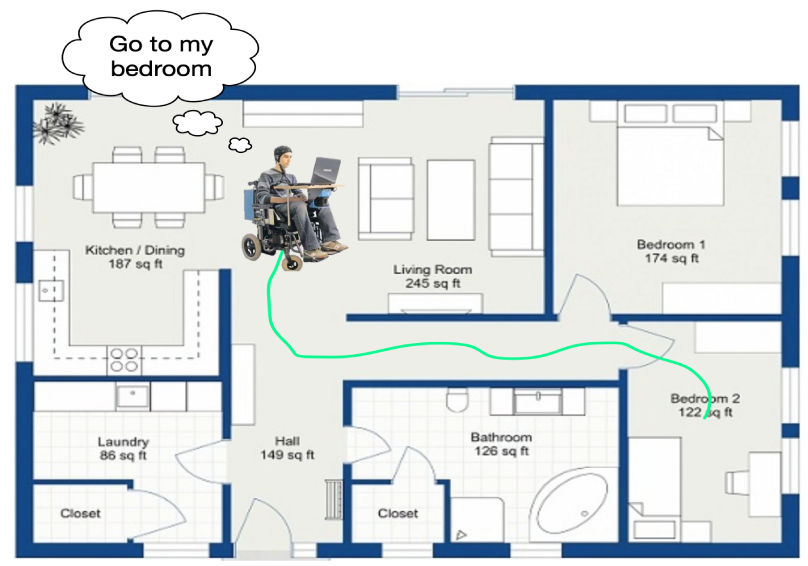Cloud-aided Brain-controlled Wheelchair with Indoor Autonomous Navigation System for People with Severe Motor Impairment
Paralysis is the most inhibiting among all the severe motor disabilities preventing
individuals from reaching their full potential. People are inflicted with paralysis
as the result of an accident or a medical condition that affects the way muscles and
nerve’s function. Even in the case of a complete loss of voluntary control of their
muscles, paralyzed people can still be autonomous and more useful in many other ways
than many able-bodied people. Brain-computer interface (BCI) technology is now being
incorporated into the treatment of many patients suffering from physical impairment.
This technology can greatly enhance their quality of life by considerably improving
their mobility and thus their autonomy. With BCI technology, severely impaired people
can brain-control devices such as wheelchairs by decoding brain signals represented
in EEG data, into control commands using artificial intelligence (AI) methods.
In this project, we propose to develop a smart, brain-controlled wheelchair for people who have severely impaired motor functions. This system, installed on a wheelchair, allows patients regardless of their level of impairment, to move around autonomously and effortlessly in indoor environments such as homes, schools, malls and workplace. One of the most important elements of this solution is allowing users to access pre-trained AI models from the cloud to be used on per need basis with no prior training. This cloud-based approach is facilitated by deploying trained models for specific indoor premises, that are obtained offline. The system associated with the wheelchair incorporates all the necessary components such as localization and autonomous navigation, obstacle detection and avoidance, and path planning. These components are adjusted to autonomous mobility in indoor constrained environment with no necessary prior knowledge of the accessed premises.
The main benefit of this system is to allow people with severe motor impairments to move freely around in known or unknown indoor environments through several BCI modalities with minimum instructions. Our proposed system is tailored towards UAE patients as far as the system interface and can also be extended to other applications improving the autonomy of able people who have limited mobility due simply to their age or enhancing the performance of participants in various entertainment activities.
Contributors:
- Dr Abderrahmane Lakas (Professor, Computer and Network Engineering Department)
- Dr Abdelkader Nasreddine Belkacem (Assistant Professor, Computer and Network Engineering Department)
- Dr Fekri Kharbash (Assistant Professor, Computer and Network Engineering Department)
Do you find this content helpful?
عفوا
لايوجد محتوى عربي لهذه الصفحة
عفوا
يوجد مشكلة في الصفحة التي تحاول الوصول إليها


